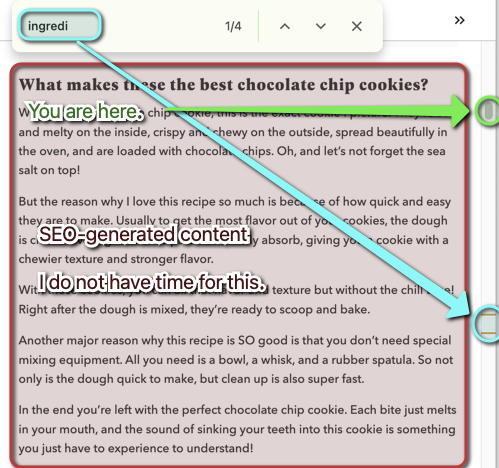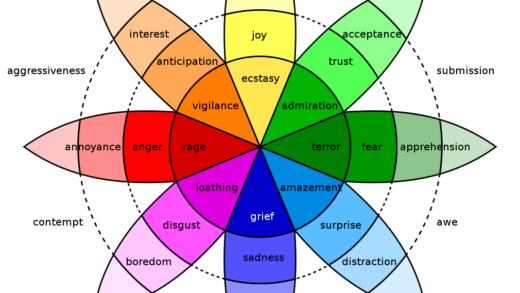A new hire asked me recently if they’ll still have a job in a few years. Between AI, tech layoffs, and the endless “SEO is dead” headlines, they were feeling uneasy. And I get it. I’m not naively optimistic, but I’m also aware that this isn’t the first time someone’s said “SEO is dead“; hell, it’s not the first time someone uttered “[Insert industry here] is dead.”
Friedrich Nietzsche’s “God is Dead”
I paraphrased Nietzsche in the title cus that’s the fortune-cookie soundbite that makes the rounds, i.e. even if you’ve never studied philosophy, you’ve undoubtedly heard the Nietzsche quote, “God is dead.” Fittingly, it’s misinterpreted as often as “SEO is dead.”
Nietzsche was talking about how religion served as the foundational backbone for morality in Europe, and this was a problem because Europe was entering a technology boom with phones, radios, railroads, X-rays, etc.
However, religious texts tend to be deeply entrenched in the time period they’re written, leaving little wiggle room for “amendments” — lest you make a New New Testament. With tech continuing to evolve, modern living keeps changing, making religion further and further removed; becoming less and less relevant.

Nietzsche’s crisis was about how religion served as the foundational basis for what was “good” and “bad.” But as The Bible didn’t specify microscopic germs, then what if germs are good and our invention of Aspirin is bad? What if mowing down trees to make way for the railroads is bad? The Bible takes issue with certain trees (Figs & Trees of Knowledge, you know), so maybe that’s good?
Oh-kaaaay… so thanks for Philosophy 101, but what’s this context got with SEO?

SEO “Best Practices” are dead. Remain dead. And if they’re serving as your argument for implementation, kill them.
I hear “Best Practice” and I think “SEO Fundamentalist.” It’s a proclamation of someone’s rigid adherence to something that was written down however long ago. Of course, writing it down is part 2, part 1 is experimenting! “SEO is a moving target,” it is always changing.
A “Best Practice” is a “Best Practice” for the time and site it’s created for. You won’t find people arguing today to “optimize meta keywords” or that image alt text is equally important for ecommerce sites as it is for education sites.
Yet, in the early 2000s, the first “Death of SEO” came about when Google cracked down on keyword stuffing. The second instance was during the rise of Twitter and Facebook, but all this did was enable SEOs to evolve their toolkit; they started monitoring social trends and factoring it into their content strategy. And again, in the 2010s with “Traffic is dead,” zero-click searches are taking over… yet now we optimize for position 0 and rich snippets.
But alas, ChatGPT & AI are here, and there’s no “best practice” to guide us! Yet are there SEO experts proselytizing, “Show’s over folks, pack it in, SEO is officially dead & buried this time.”?
No.
If anything more research is uncovering ChatGPT (and LLMs) are a different beast entirely; in the same vein that 3D printing didn’t replace 2D printing, people are using ChatGPT (a lot) but many are doing so for different reasons, personalized advice, content (image/music/video) generation, homework (lots of homework). If anything, ChatGPT mere existence is making the case for organic search to go all-in on EEAT.
SEO-Generated Content is the Problem
Gen Z ain’t opposed to AI-generated content. They’re opposed to inauthentic, marketing tomfoolery.
There’s a collective misdirect by referring to AI-generated content as “AI-generated content,” but it’s a straw man for what people really mean: content created for SEO’s sake. It is literally AI-created, but it’s SEO-generated.
And this ain’t far-fetched.
Nowadays, there are dedicated marketing classes to SEO; younger demographics frequenting TikTok, YouTube & Instagram where people openly discuss “the algorithm” with their audience. Many users (especially Gen Z) still append their Google searches with “reddit” in an effort to find authentic views. And, albeit niche, my mother has finally stopped calling me the “CEO” and knows the term “search engine optimization” — however disappointing that may be to tell my other relatives.
The point is, “SEO” is known. Articles written for the sake of “ranking in Google” are as obvious as they are annoying.

For years, Google has been touting EEAT. Unique experiences, obvious expertise, source of authority, and — above all else — trustworthiness. Arguably, users are still cautious about LLMs trustworthiness, but that’s the same reason why people are skeptical of SEO-generated content.
At least, click-bait articles were structured like a punchline, providing an element of whimsy to the carnival barker-ness, “Site Sets Up Expectation –> User Makes Assumptions –> Site Subverts Expectations.” Whereas SEO-generated content is worse. There is no whimsy; no self-awareness; just a flagrant:
“Let me do everything in my power to pretend I have the answer to an honest query.”
^This is the new “keyword stuffing.” This is what LLMs and AIOs are targeting. This version of SEO is dead and good riddance.



